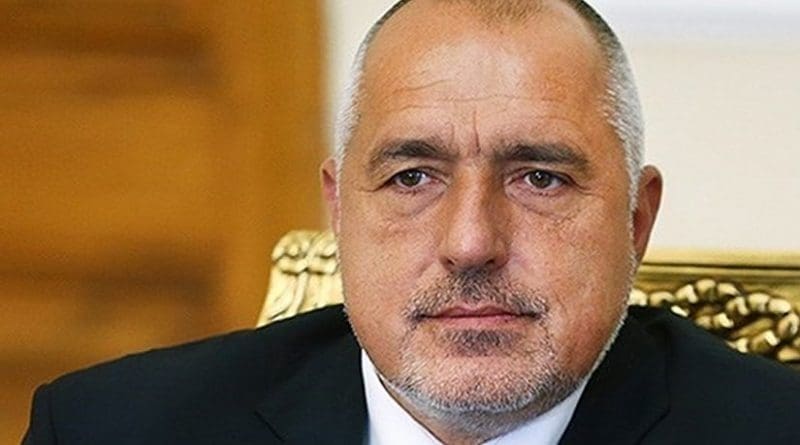Bulgaria PM Denies Link To Suspected Money Laundering In Spain
Boyko Borissov has dismissed Spanish newspaper claims that he might be connected to a suspected money laundering operation based in Barcelona.
By Svetoslav Todorov
Bulgarian Prime Minister Boyko Borissov has denied links to a suspected money-laundering scheme based in Barcelona. He issued the denial after a Barcelona-based newspaper published a front-page report on Friday claiming he and other senior officials in Sofia might be linked to another Bulgarian citizen in Spain suspected of laundering millions of euros through the city.
El Periodico newspaper said it had seen police records detailing the suspected money laundering scheme which “is currently being carefully investigated” by Spanish anti-corruption prosecutors.
It said that EMA BG company had received millions of euros in suspicious transactions from non-Spanish nationals in recent years. The newspaper said the company had received a total of five million euros from individuals living outside Spain since 2013.
The company, however, did not comment on such claims by the time of publication.
The article quoted documents from Spain’s anti-corruption prosecution office that said this money of suspicious origin “might be related to undeclared funds of high-ranking officials in the Bulgarian government”. The prosecution office is reportedly investigating the case.
Catalan police, in their response to Free Europe, have confirmed that they are indeed conducting such an investigation but declined to give details, including whether the prime minister’s name was implicated.
The latest case carries echoes of an earlier affair that erupted in 2015 when a leaked conversation between two judges included the claim that Borissov had bought a property for 1.5 million euros for a girlfriend in Barcelona.
Borissov on Friday denied having ever bought the property in Spain. “I’ll say it for the hundredth time – I don’t have a house there, I don’t have any property there; the last time I was in Barcelona I was there as a mayor of Sofia 15 years ago,” he told journalists on Friday at the European Council in Brussels.
He said no authorities had contacted him about the case. Interior Minister Mladen Marinov on Friday also said that there had been no inquiries about Borissov from the Spanish or other authorities.
The Prime Minister declined to confirm or deny whether he knew Yovcheva, however. He also hinted at suspicions that outside influences, possibly Russian, had a hand in the allegations.
“Let them do their investigation but I’m pretty sure this all comes from the East and I’ll bet a few [Russian] rubles on that,” he said, not elaborating on his theory. He also suggested that President Rumen Radev – with whom he is often in conflict – might be also involved.
El Periodico said he had refused to speak to them, which Borisov confirmed, saying: “It doesn’t make sense to talk about something that’s not proven”. He promised to make an official statement once the investigation is closed.

